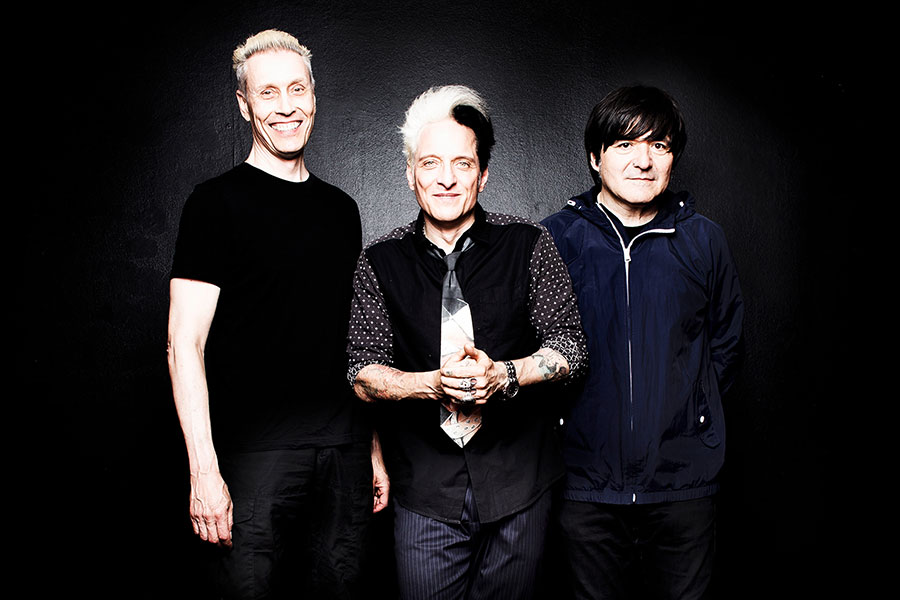Punk rock trio Die Ärzte have been known to refer to themselves as the best band in Berlin and the best band in the world. While they might not be as well known internationally as their peers Die Toten Hosen, Die Ärzte have played an important part in the German punk scene.
Regardless of whether you’re a fan of punk rock or not, get to know Die Ärzte — this month’s music recommendation for German language learners.
Get to Know Die Ärzte
Like many bands, Die Ärzte developed from other projects. In 1980, Dirk Felsenheimer (today known as Bela B) and Jan Vetter (now known by the moniker Farin Urlaub) met in a German disco. Urlaub became the new guitarist in Soilent Grün, Bela B’s punk band at the time after their then-guitarist had his instrument stolen. A few years later when the band parted ways, the pair decided to form Die Ärzte with bassist Hans Runge (aka Sahnie).
The trio’s line-up has changed over the years. Following their second album, the group parted ways with Sahnie. Producer Manfred Praeker stepped in on bass duties for their third album and Hagen Liebing (known professionally as The Incredible Hagen) took over for live performances. In 1993, Rodrigo González (sadly, there’s no nickname here) joined the band and that’s the current line-up.
As a punk band, it shouldn’t be too much of a surprise that the band has courted controversy over the years. They’ve had their music put on the German index of music considered by the government to be harmful. And they’ve used imagery that would be controversial. It is worth noting, however, that upon rerelease years later, some of the band’s albums were actually removed from the index. With more than a dozen albums to their name, the trio has shown they have staying power.
The Music of Die Ärzte
1984’s Debil was the band’s first album. The album’s second single, “Zu spät” gained them some attention. Two additional albums followed in as many years: 1985’s Im Schatten der Ärzte and 1986’s self-titled full-length release. They finished off the 1980s with 1988’s Das ist nicht die ganze Wahrheit…. By this time the group’s music was well received and had moderate success. At the time, they said this was the band’s end and they pursued other projects.
But a few years later, the three reunited. It became a turning point with 1993’s Die Bestie in Menschengestalt. The album’s lead-off single, “Schrei nach Liebe,” is an anti-Neonazi song with a memorable hook and powerful chorus. And with that success, the band was off and running again.
Planet Punk followed in 1995 and Le Frisur in 1996. Both albums were top five hits. But in 1998, in a first for the band, the single “Ein Schwein namens Männer” went to the top of the charts along with the band’s eighth album 13. Since then, each of the band’s albums have reached the number one spot on the German charts. 2000’s Runter mit den Spendierhosen, Unsichtbarer!, 2003’s Geräusch, 2007’s Jazz ist anders, and 2012’s auch.
And there is no slowing down for the group. The 2020s have continued to see chart-topping albums from Die Ärzte. 2020’s Hell, and 2021’s Dunkel. Afterall, punk’s not dead.
Looking for another Ohrwurm to help you learn German? Check out previously featured musicians and bands!
Photo by Jörg Steinmetz, courtesy of the band’s official website. This post contains affiliate links.
